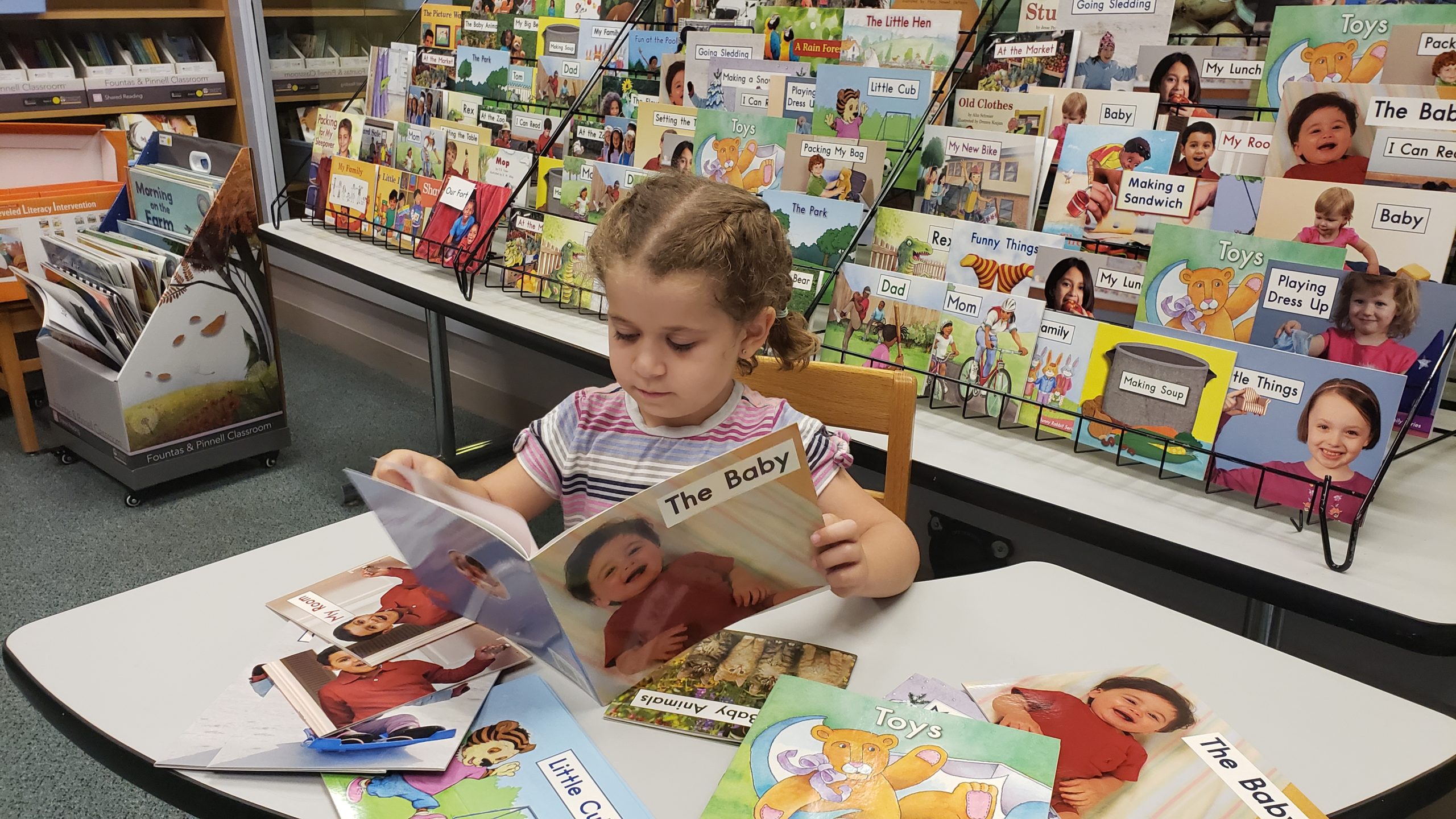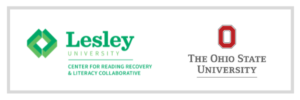Leveled Literacy Intervention National Tutoring Scale-Up Model

Ensure effective Leveled Literacy Intervention (LLI) implementation in your school or district by training tutors and lead tutors.
Support readers and writers to make literacy progress in 12-18 weeks. In partnership with The Ohio State University, we are proud that LLI is recommended and featured on the National Proven Tutoring website.
- Classroom Teachers, Interventionists, & Specialists
- Literacy Coaches & Teacher Leaders
Request a complimentary consultation

In order to scale up the effective implementation of Leveled Literacy Intervention, Lesley University and The Ohio State University have partnered to design a structured, organized approach for training Tutors and Lead Tutors and providing ongoing support to ensure effective implementation in your school or district.
Leveled Literacy Intervention (LLI) is an evidence-based intervention that provides intensive instruction to students who are performing significantly below grade level in reading and writing. LLI is a short-term daily intervention designed to help students make literacy progress in 12 – 18 weeks. It is supplemental to classroom literacy instruction.
LLI is a proven approach whose effectiveness is based on several key factors including:
- A structured and organized set of practices that include a massive amount of reading, writing, and phonics/word study.
- Daily work with very small groups of children with the goal of accelerated progress.
- Engaging books and other materials to increase motivation and support comprehension.
- A rigorous professional learning program that extends across the school year.
Training Format
The training is provided through a number of distance learning tools that utilize both real-time and on-demand learning. We are only offering virtual professional learning solutions at this time.
LLI Tutors engage in the equivalent of 75 hours of professional learning and implementation support across a school year. The training is provided through a number of distance learning tools that utilize both real-time and on-demand learning.
Three days of real-time training is provided to launch the implementation of LLI and focuses on the use of assessment tools to analyze student reading, writing, and phonics knowledge. Training is designed to blend closely with “on the job” application of the understandings and practices that the tutors are taking on so that immediate application and feedback can take place.
Training topics include, but are not limited to:
- Using assessment tools to analyze student reading, writing and phonics knowledge
- Setting goals for progress and monitoring progress
- Organizing for instruction—materials and time
- Understanding and using LLI lesson frameworks
- Planning LLI lessons
- Working effectively with children in small groups
- Making the most of phonics: helping children solve words
- Using the power of writing about reading
- Analyzing reading and writing behaviors to make effective instructional decisions
- Working for fluency and phrasing in reading
- Expanding writing capability
- Responsive teaching
Lead Tutors engage in the same 75 hours of professional learning as the LLI Tutors and they receive an additional 25 hours of training to learn how to monitor and oversee the implementation of the intervention in their schools.
They learn how to effectively facilitate the quality of the implementation and participate in progress monitoring meetings with their colleagues. They learn how to work with adults to lead discussions, guide tutors’ application of the lesson framework, and facilitate reflective conversations about effective LLI implementation.
About ProvenTutoring
ProvenTutoring is a coalition of organizations that provide high-effective tutoring programs to support students across the U.S. It was founded by Robert Slavin and Nancy Madden of Johns Hopkins University as a nonprofit subsidiary of the Success for All Foundation. The website, ProvenTutoring.org, helps educators learn about and access tutoring programs proven in rigorous research to substantially increase the achievement of students performing far below grade level due to COVID school closures or other factors.